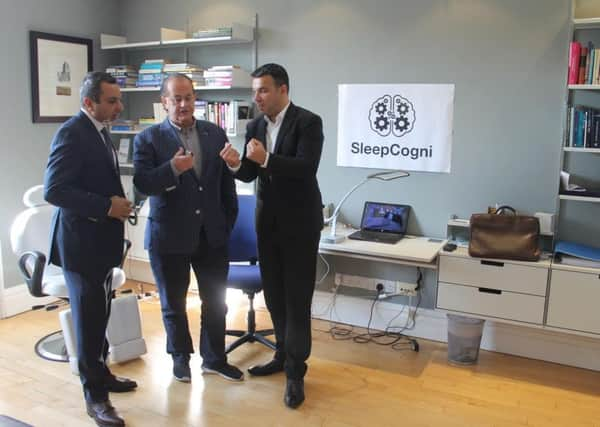£500,000 investment for city sleep aid invention


Richard Mills, chief executive officer of Braintain 20:20, developed ‘SleepCogni,’ which features a hoop on an arm over the bed that produces sounds and light patterns designed to send people to sleep.
And Richard, who created the device after suffering years of insomnia, teamed up with Heaven 17 star Martyn Ware to develop the sound element of the device.
Advertisement
Hide AdAdvertisement
Hide AdBraintrain 20:20 has now received £485,000 from Mercia Fund Management and notable angel investors, including senior sleep specialists and healthcare entrepreneurs, which will be used to expand the business and complete a formal clinical trial at a top-tier sleep research centre.
Richard said: “Our mission is to help the millions of sleep sufferers around the world with a clinically proven, non-drug solution and reduce the world’s dependency on sleeping tablets. In addition to helping you sleep, SleepCogni also measures heart rate, skin temperature and oxygen levels in the blood to build a sleep programme.
“We needed an investor that understood our journey ahead and could help us plan for future growth. Mercia is the perfect partner for us, as their ‘Complete Capital Solution’ will be able to meet our needs as a personalised healthcare technology start-up.”
Dr Ashish Patel, investment manager for Mercia, said: “We have wanted to explore the consumer personalised healthcare market for a long time, and we are particularly excited about Braintrain 20:20, which has the potential to become industry-leading, given the sector expertise of the team.
Advertisement
Hide AdAdvertisement
Hide Ad“The technology could also be modified for other health issues, thus allowing people to take control of their health, while decreasing the burden on stretched health services.”
Following a recent pilot study, 50 per cent of users reported improvement in their sleep.